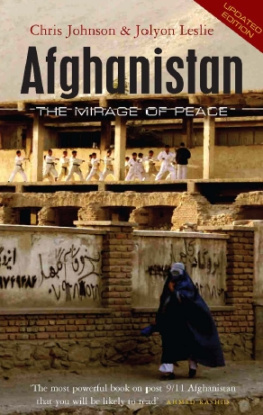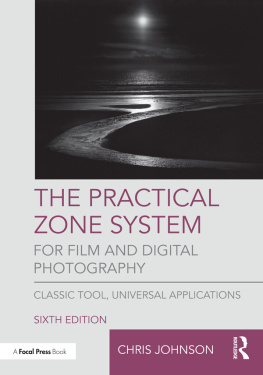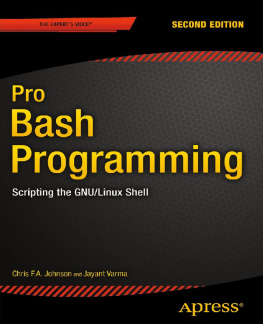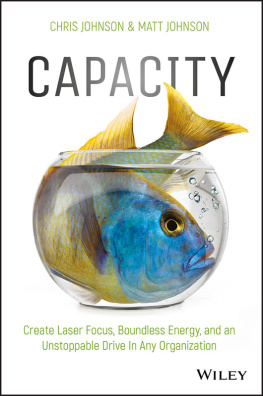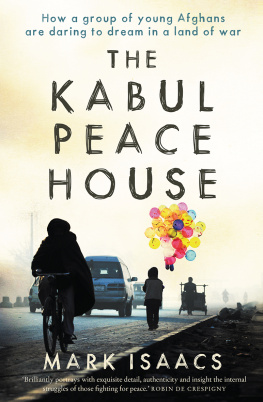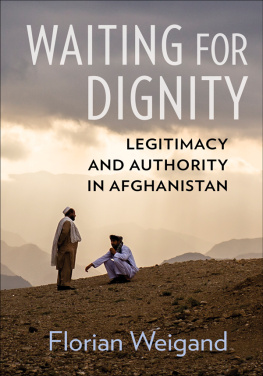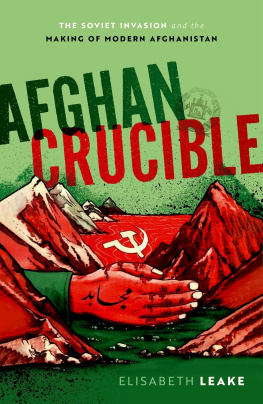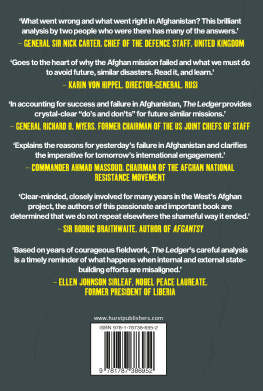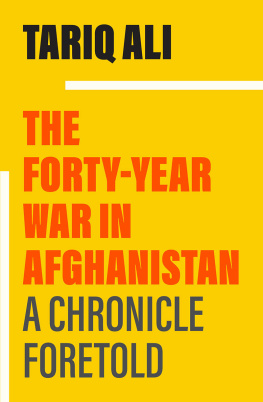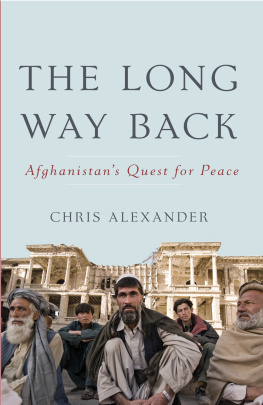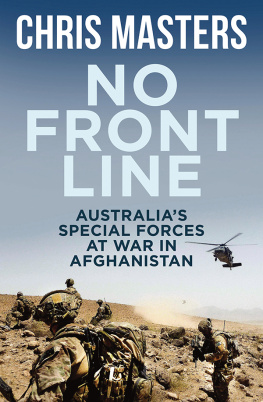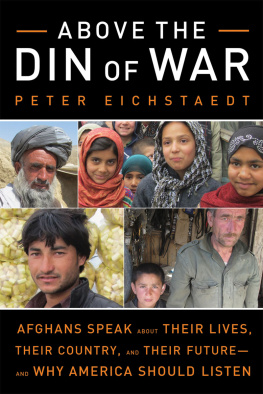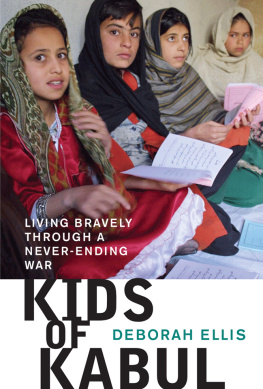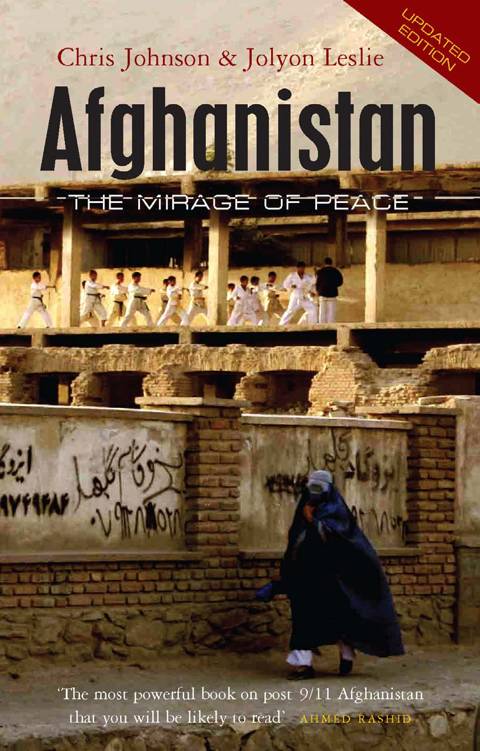
Praise for the first edition
A vivid, intelligent journey through post 9/11 Afghanistan and the wider region. Thoughtful, astute and deeply moving this account of the post-war crisis in Afghanistan addresses all the major issues of our disturbed world today. The clarity and intellectual forthrightness of this book will help us to understand the violent and confused world we all live in now. This is a deeply sincere book in which the voices of ordinary Afghans describe their past and their future. The most powerful book on post 9/11 Afghanistan that you will be likely to read. Ahmed Rashid, author
This book provides a devastating critique of US and UN post-conflict policies in Afghanistan. Writing out of more than fifteen years experience in the country and a deep empathy for the Afghan people, the authors dissect the flawed assumptions, misunderstanding, errors and in some cases lack of good faith than have stalled progress in rebuilding this shattered country. It should be required reading for all those interested in why post-conflict peace operations can fail despite good intentions. Andrew Mack, Simon Fraser University, Vancouver
Amidst a burgeoning literature on Afghanistan, two seasoned observers treat readers to a trenchant review of decades of international toying with the Afghan people and state. Their outrage is palpable
and contagious. Larry Minear, former director, Humanitarianism and War Project, Tufts University
This is a refreshing new look at the layers of complexity that characterize assistance to Afghanistan. The style is blessedly free of academic jargon and bureaucratic rhetoric and enlivened by occasional wry asides. The often blunt analyses of realities on the ground gain credibility from the many years Johnson and Leslie worked within the aid delivery system, heightened by their sustained engagement with Afghans in cities and villages. The difficulties the international community and government have in trying to understand one another are interwoven with unusual insights into the nuances of attitudes rooted in social customs. The recommended operational changes will benefit all who care about the well-being of Afghanistan. Nancy Hatch Dupree, The Afghanistan Centre at Kabul University
Johnson and Leslie have brought together a wealth of first-hand understanding of Afghan society and its changing conditions to produce a very rich and moving book. It is informative, thoughtful and unsettling. It makes for very valuable reading. Amin Saikal, Professor of Political Science, the Australian National University
About this book
Considered upon first publication by many to be too pessimistic, Johnson and Leslies analysis of the situation in Afghanistan has proved to be tragically accurate. This updated edition adds a new chapter to the 2004 original, exploring how claims of success have often proved to be hollow, as Afghanistan is increasingly portrayed as replacing Iraq as the bad war. Afghanistan looks at a country now widely recognized to be in deep crisis, examining the corrosive effect of international military forces and the corruption and muddle that jeopardize efforts at state-building. As before, the analysis is rooted in the experience of ordinary Afghans and their relationship to their complex history.
Now, more than ever, it is important to understand Afghanistan and examine the recent experience of international engagement, and the myths and half-truths that abound. Politically marginal after the withdrawal of Soviet troops, it regained strategic importance after September 2001, as the first of a new generation of international interventions. Now, increasingly detached from the people it is meant to serve, the administration in Kabul struggles to govern even the diminishing areas of the country over which it has some sway. Whatever political progress that has been possible now takes place against a backdrop of mounting casualties among Afghan civilians and NATO troops. Many Afghans feel themselves to be trapped, hostage between two forces, both of which claim to be their liberators.
Drawing on long experience of living and working in Afghanistan, Chris Johnson and Jolyon Leslie examine what the changes of recent years have meant in terms of Afghans sense of their own identity and hopes for the future. They argue that the so-called war on terror cannot be won in Afghanistan but requires even-handed political responses to the problems that strip people of the wider region of hope and foster extremism.
About the authors
Chris Johnson lived in Afghanistan from 1996 to April 2004. She worked first for Oxfam, then set up a joint UN/donors/NGO research unit, the Afghanistan Research and Evaluation Unit, where she worked until early 2002. She then undertook a wide range of consultancy work for different organizations concerned with the transition. She now works for the UN Mission in Sudan.
Jolyon Leslie is an architect who managed UN rehabilitation programmes in Afghanistan betweeen 1989 and 1995. Between 1997 and 2000, he was the UN regional coordinator in Kabul, and returned to the country in early 2002. He currently manages an urban rehabilitation and conservation programme in the old quarters of Kabul and Herat.
Afghanista n
The mirage of peace
Z
Zed Books
LONDON NEW YORK
Afghanistan: The mirage of peace was first published in 2004 by Zed Books Ltd, 7 Cynthia Street, London , and Room 400, 175 Fifth Avenue, New York, 10010, .
www.zedbooks.co.uk
This new edition was first published in 2008
Copyright Chris Johnson and Jolyon Leslie, 2004, 2008
The rights of Chris Johnson and Jolyon Leslie to be identified as the authors of this work have been asserted by them in accordance with the Copyright, Designs and Patents Act, 1988.
Cover designed by Andrew Corbett Set in Monotype Dante and Gill Sans Heavy by Ewan Smith, London Printed and bound in Malta by Gutenberg Press Ltd
Distributed in the exclusively by Palgrave Macmillan, a division of St Martins Press, , 175 Fifth Avenue, New York, 10010
All rights reserved. No part of this publication may be reproduced, stored in a retrieval system or transmitted in any form or by any means, electronic, mechanical, photocopying or otherwise, without the prior permission of Zed Books Ltd.
A catalogue record for this book is available from the British Library Library of Congress Cataloging in Publication Data available
All rights reserved
978 1 84277 955 2 hb 978 1 84277 956 9 pb
Contents
Foreword by William Maley | xii Map | x v
Introduction: four years on 1 Losing the war | 2 State building | 6 Corrupting the state | 8 Human rights | 10 Religion and state | 11 Walking the tightrope | 12 Political developments | 12 The way forward | 13 The international dimension | 15
The mirage of peace 19 Illusions of peace | 21 Liberation | 23 Raising the stakes | 25 Bombing-in a peace | 29 Losing hearts and minds | 31 New beginnings? | 34 Failure is not an option | 39
Identity and society 41 New values and old | 41 Rooted in Islam | 46 Identity and others | 48 Civil society? | 57 Making decisions, being represented | 59 War and social change | 63 Ethnicity | 70 Closing ranks | 75 Managing the world beyond | 75 Dreaming a past | 77
Ideology and difference 81 Confronting the Taliban | 84 The UN and the Strategic Framework for Afghanistan | 87 An alien way of looking at the world | 92 Could it have been different? | 96 The legacy of confrontation | 100
One size fits all Afghanistan in the new world order 102 Reasons for war | 102 Early courtship | 105 Changing attitudes | 107 Isolating the Taliban | 111 Aid, rights and the US project | 113 Stitching up a country | 116 Human rights | 121 NGOs wanting it both ways | 123 Failing the Afghans | 124

